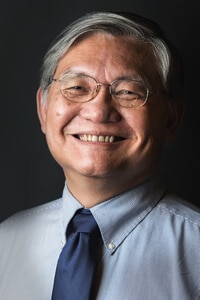We recently talked with Soo-Inn Tan, co-founder (along with his wife, Bernice Lee) and director of Graceworks, a ministry committed to promoting spiritual friendship in church and society. Soho-Inn talks about his work in publishing, what he is working on now, spiritual friendship, and more.
Tell us about yourself and your work in publishing over the years.
My involvement with publishing started when the Lord brought Bernice (Lee) and I together in marriage. Bernice was an established publisher having co-founded Armour Publishing, a Christian publishing company based in Singapore. We believe when the Lord brings two believers together in marriage, He sets up a partnership for His work.
The Lord gave us the vision to start a ministry called Graceworks. The ministry has two primary activities: publishing and teaching. I do most of the teaching, and Bernice oversees the publishing. Graceworks focuses on relational ministry and seeing lives transformed though authentic relationships.
Graceworks is not a general publisher. Our publishing focuses on two broad areas: we publish books that show people how they can connect in Christ (books on spiritual friendship), and we publish books that help followers of Jesus live out their faith in the world (such as books on politics, corruption, and aging).
Tell us about Graceworks and the kinds of projects you are working on right now.
We have two key foci under our teaching ministry. One is mentoring, which involves researching, writing, and training people how to walk with others to guide them to grow in maturity. Another exciting project is what we call the Generations Project. We live in a unique point in history in which at least five generations are living and working together. But each generations is a product of different formative experiences. Because of this, these generations end up perceiving faith and life differently.
We are doing first-hand research of Christians who are from the Silent, Boomer, Gen X, Millennial, and Gen Z generations to find out how they perceive the faith. Our goal is to help believers of different generations understand each other, to minimize conflict, and to be able to work together.
In our publishing ministry, we have been privileged to publish many key books. We have one series that helps the Church understand believers who grapple with same sex attraction, mental illness, and racism—and how we can better love them. We also have a series of books for children called the Invisible People series. This is aimed at helping children and their parents understand and respect those who are not normally respected in our society, such as bus drivers and domestic helpers.
You have written about spiritual friendships. Talk to us about what that term means and how these can change our lives.
Spiritual friendship is not a friendship that deals only with the spiritual aspects of life. There is no sacred-secular divide. All of life is to be lived under the lordship of Christ. The “spiritual” in spiritual friendship is a reference to the fact that a spiritual friendship is a relationship between two or more people that is based on a common, shared relationship with Christ. Christ is the bond that holds spiritual friends together.
Every friendship is also defined by a purpose. The purpose of spiritual friendship is for the friends to help each other be better friends of Christ. Spiritual friendship then is a friendship that is rooted in Christ and helps friends in their common commitment to follow Christ. Spiritual growth is not a DIY project. We need the Word and the Spirit, but we also need to follow Christ in the company of friends.
Who has been your inspiration as you have pursued your faith and vocation? What was it about this person that so encouraged you?
I have been inspired by authors like Frederick Buechner, Henri Nouwen, Anne Lamott, and Annie Dillard. I am inspired by how they are rooted in a biblical worldview yet utterly honest about life in the real world. I strive to be the same.
As for mentors who have inspired me, there have been a number. Let me name one—the late W. Ward Gasque. He was my ThM thesis supervisor, but he was much more than that. He and his wife, Laurel, loved me generously. Ward guided me into the world of research. He opened doors of ministry for me and was always encouraging. He gave me a clear theology for rejecting any clergy-laity divide and any sacred-secular divide. I realize I am who I am, at least the good parts, because folks like Ward poured their lives into mine.
In the past you have not only attended LittWorld, but have served as its chaplain. What have you learned about God’s people in this role?
The setting up of the role of chaplain was a recognition that we can’t be equipping people for their ministry in publishing without caring for their emotional and spiritual needs. In truth, we are all multifaceted beings and our health (or lack of it) in one area of our lives impacts the other areas.
As chaplain, it was a privilege to listen to the stories of many who sought help (or at least a listening ear) for the things they were going through. And being away from home meant people were often more willing to share their stories, especially with a chaplain they didn’t know personally but who was focused on them and their struggles. I met up with folks from different countries and from different cultures. I was struck at how different the cultures were and how similar were the human struggles we all grappled with.
Why would you encourage people to attend LittWorld?
The ministry of publishing has always been critical. The right book at the right time can start a revolution or lead to spiritual revival. The Covid pandemic means all of us are facing issues we have never encountered before. More than ever, we need to encourage each other and learn from each other how we can be faithful voices of hope. This LittWorld takes place at a crucial point in history. Let us gather to minister to each other as we collectively seek the Lord for a fresh vision for the Christian publishing ministry.

